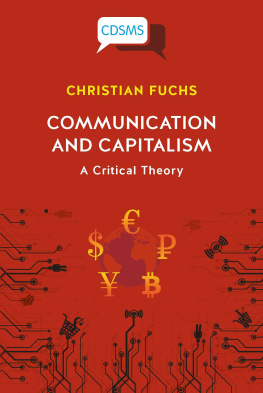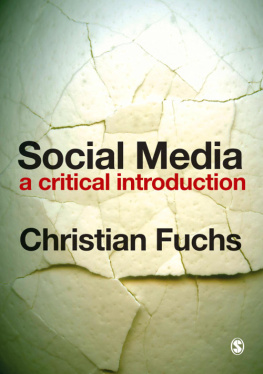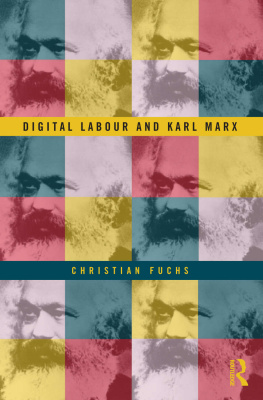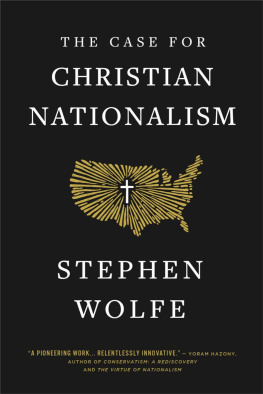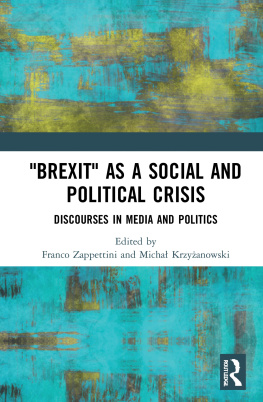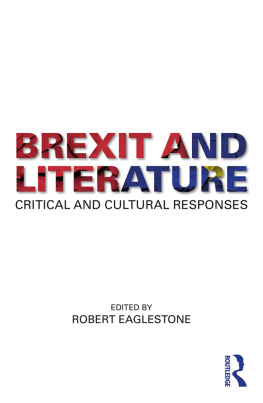Christian Fuchs - Nationalism 2.0: The Making of Brexit on Social Media
Here you can read online Christian Fuchs - Nationalism 2.0: The Making of Brexit on Social Media full text of the book (entire story) in english for free. Download pdf and epub, get meaning, cover and reviews about this ebook. year: 2018, publisher: Pluto Press, genre: Politics. Description of the work, (preface) as well as reviews are available. Best literature library LitArk.com created for fans of good reading and offers a wide selection of genres:
Romance novel
Science fiction
Adventure
Detective
Science
History
Home and family
Prose
Art
Politics
Computer
Non-fiction
Religion
Business
Children
Humor
Choose a favorite category and find really read worthwhile books. Enjoy immersion in the world of imagination, feel the emotions of the characters or learn something new for yourself, make an fascinating discovery.
- Book:Nationalism 2.0: The Making of Brexit on Social Media
- Author:
- Publisher:Pluto Press
- Genre:
- Year:2018
- Rating:4 / 5
- Favourites:Add to favourites
- Your mark:
- 80
- 1
- 2
- 3
- 4
- 5
Nationalism 2.0: The Making of Brexit on Social Media: summary, description and annotation
We offer to read an annotation, description, summary or preface (depends on what the author of the book "Nationalism 2.0: The Making of Brexit on Social Media" wrote himself). If you haven't found the necessary information about the book — write in the comments, we will try to find it.
Nationalism 2.0: The Making of Brexit on Social Media — read online for free the complete book (whole text) full work
Below is the text of the book, divided by pages. System saving the place of the last page read, allows you to conveniently read the book "Nationalism 2.0: The Making of Brexit on Social Media" online for free, without having to search again every time where you left off. Put a bookmark, and you can go to the page where you finished reading at any time.
Font size:
Interval:
Bookmark:

The Making of Brexit
on Social Media
Christian Fuchs

First published 2018 by Pluto Press
345 Archway Road, London N6 5AA
www.plutobooks.com
Copyright Christian Fuchs 2018
The right of Christian Fuchs to be identified as the author of this work has been asserted by him in accordance with the Copyright, Designs and Patents Act 1988.
Typeset by Stanford DTP Services, Northampton, England
On 23 June 2016, the British population voted to leave the EU: 51.9 per cent opted for Leave, 48.1 per cent for Remain. In England and Wales, the majority of votes were in favour of leaving, whereas in Scotland, Northern Ireland and London the majority opted for remaining in the EU. Of course, these regions did not vote separately, but as one unit of voters. Nonetheless, such a differentiation shows interesting regional differences.
Who Voted for Brexit?
The turnout was 72.2 per cent. The typical Brexit voter was older than forty-five years, came from social groups C2 (skilled manual workers) or DE (semi-skilled and unskilled working class, casual workers, pensioners, the unemployed), had a low level of education, was white, and thought that multiculturalism, social liberalism, feminism, the Green movement, globalisation and immigration were forces for ill (Ashcroft 2016).
According to a poll, 71 per cent of routine manual workers and 59 per cent of those who were not in paid work voted in favour of Brexit (Goodwin and Heath 2016); 64 per cent of those belonging to the C2 (skilled manual workers) and DE (semi-skilled and unskilled manual workers, casual workers, pensioners, the unemployed) social groups voted for Brexit (Ashcroft 2016).
Take Back Control of Legislation or Immigration: A Statistically and Sociologically Shaky, Unreliable and Inadequate Separation
For 49 per cent of the Leave voters participating in the post-election poll, the main reason given was that they thought decisions about the UK should be taken in the UK; 33 per cent said the main reason was that leaving would mean a better chance of controlling immigration and British borders (Ashcroft 2016). In a post-referendum poll with 1,069 participants, 53 per cent of the Leave voters said that the ability of Britain to make its own laws was their main reason to vote for Brexit, followed by 34 per cent who answered that immigration was the main issue for them (Centre for Social Justice 2016, 9).
The data in these two polls indicate that xenophobia played an important but possibly not dominant role among Leave voters. The problem of how the question was posed in both polls is that the two motivations national decision making and national control of immigration overlap: the motivation to opt for the first choice can be that one thinks that national decision making is important because it can then be easier to control or stop immigration. Around 50 per cent of both Leavers and Remainers participating in the Ashcroft (2016) poll thought that capitalism was either good or bad: 79 per cent of the Remainers thought immigration was good, 80 per cent of the Leavers that it was bad. Of the Leave voters participating in the poll, 39 per cent described themselves as English and not British or as more English than British, whereas the share among Remainers was just 18 per cent. The data indicate that English nationalism seems to have been more prevalent among those who voted for Brexit.
Alternative Methods
A study by Clarke, Goodwin and Whiteley (2016), based on data from one pre- and one post-Brexit survey, showed that age, education, social class and attitudes towards immigration had a significant impact on voting behaviour.
[V]oters with highly negative attitudes about immigration were more likely than other people to extol the benefits of Brexit and to minimize the costs of doing so. [] older voters and voters from university educated people and those in higher social grades were significantly less likely to see the benefits of leaving the EU than were other people. In contrast, older voters were more likely to judge that Brexit would have benefits by helping to control immigration and reducing the threat of terrorism. [] [E]ffects associated with socio-demographic characteristics including age, education and social class were observed. (Clarke, Goodwin and Whiteley 2016, 20, 24)
Older people with lower education who worked or work in blue-collar jobs and oppose immigration were very likely to vote for Britain leaving the EU.
Becker, Fetzer and Novy (2016) built a mathematical model based on data from the EU referendum. The data were aggregated at the level of 382 local authority areas. The three scholars found that the following factors showed a statistically significant influence on the level of an areas Leave vote: a relative large voting share for UKIP and the British National Party in European Parliamentary elections, above-average migration levels from Eastern European EU countries, a high level of fiscal cuts, long waiting times for cancer treatment, low average educational qualification, higher average age, a higher level of employment in manufacturing, lower wages and higher unemployment. A larger flow of migrants from Eastern Europe reaching a local authority area with a larger share of unqualified people or a larger share of manufacturing workers is associated with a larger Vote Leave share (Becker, Fetzer and Novy 2016, 32).
The study provides interesting insights into the connection between anti-immigrant sentiments, socio-economic development and far-right politics. Nationalist politics seem to be particularly successful in areas that are hit hard by austerity politics, deindustrialisation, low wages and unemployment and where nationalist politics can easily blame Eastern European immigrants for social problems because there is a significant share of Eastern European migrant workers. Nationalism has a political-economic foundation. It is particularly prevalent in areas where social problems created by capitalism and neoliberalism hit citizens hardest and where far-right parties are strongly mobilising voters. The implication is that left-wing mobilisation against neoliberalism, nationalism and far-right politics is particularly important in areas with high levels of deindustrialisation, unemployment and low wage levels, where the far right is likely to spread xenophobic and nationalist propaganda.
British Euroscepticism
Brexit is the culmination of British Euroscepticism. Some key developments have shaped this path: the decline of the British Empire, political devolution in Scotland, Wales and Northern Ireland, the UKs accession to the EU in 1973, Thatcherism, increasing inequalities and increased levels of immigration. The combination of these factors prompted a crisis of English identity. Thus the question emerged as to whether these developments should be embraced in an open, multicultural Britain or resisted by way of English nationalism (Kumar 2003).
One of the aims of Thatcherisms Euroscepticism is resurrecting and recreating British imagined communities (Gifford 2014, 28). It assumes that the world should move inexorably towards a universal civilisation modelled on US free market capitalism. It advances Anglo-American nationalism (Gifford 2014, 82) and an Anglo-American neo-liberal project (90) over European identity and integration. Thatcher said that the roots of Americas uniqueness are essentially English (cited in Gifford 2014, 82).
Font size:
Interval:
Bookmark:
Similar books «Nationalism 2.0: The Making of Brexit on Social Media»
Look at similar books to Nationalism 2.0: The Making of Brexit on Social Media. We have selected literature similar in name and meaning in the hope of providing readers with more options to find new, interesting, not yet read works.
Discussion, reviews of the book Nationalism 2.0: The Making of Brexit on Social Media and just readers' own opinions. Leave your comments, write what you think about the work, its meaning or the main characters. Specify what exactly you liked and what you didn't like, and why you think so.


